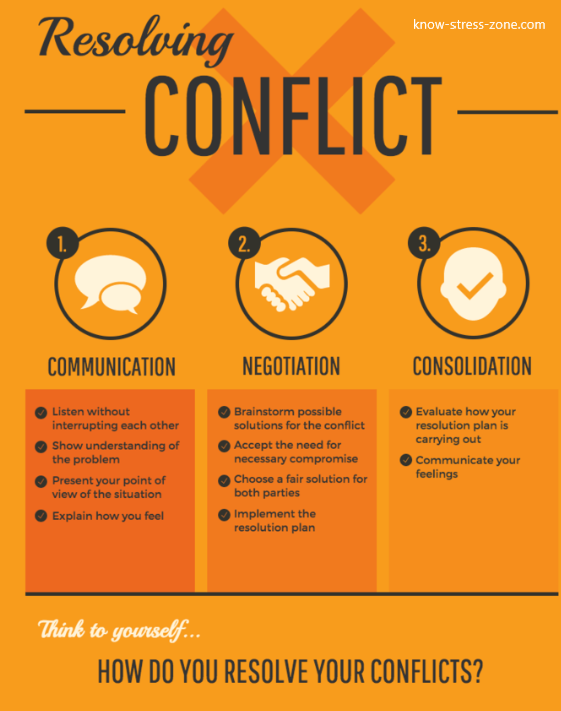Dealing With Difficult People Without Killing Anyone
Dealing with difficult people is a daunting task. I admit that I've been averse to conflict and confrontation. I most often will lean towards doing nothing and just letting the bitterness stew inside me - at least for a while. I know the avoidance method can't be sustained long-term, though. Resolving conflict
is a part of everyone’s life. Dealing with difficult people is a part of life. Thankfully, there are a number of steps you
can take to minimize the impact of these conflicts.
Dealing with Difficult People:
|
These difficult are people are unreasonable and will likely complain about everything. It's so hard dealing with difficult people!
Some people become apathetic in their situations. They used to care but felt something or someone along the way just didn’t care. Their reasoning is why should they? When this is the case, you can usually break down the barriers by getting to the root of the problem. Ask questions of this person. Find out what it is that is causing them not to care anymore.
For others who simply have a bad attitude, you have to handle this situation more delicately. The one thing you don’t want to do is give in to them so readily. Sometimes, people will do this because they bark the loudest. But, you should only let them have their way if the solution is the correct one, not just because they are barking.
One of the main solutions in dealing with difficult people is to have alternative solutions. For instance, if someone complains that a particular solution won’t work, first ask why. If they come up with a valid reason, then offer alternatives. If they continue to shoot down every suggestion you produce, ask them to come up with a solution.
Dealing with difficult bosses is a tougher situation as the boss has the upper hand. Sometimes, it can be a temporary situation where the boss is dealing with personal problems. If you can get him or her to talk about it, you may be able to diffuse the situation.
Some bosses are unreasonable or incompetent. It is just their nature, and there’s not much you will be able to do or say to change that. In this case, hopefully, you have alternatives for your employment. Maybe you can get a transfer to a new department or look for a job at another company. If all else fails, you can try to start a business. With the internet, this is easier to do than ever before.
When dealing with difficult people, you have to try to get to the cause. It’s only then that you will be able to effectively determine whether you can help the person overcome some obstacle that is making him or her be difficult. It will also let you determine if you need to move on from that person or not.
Dealing with Difficult People:
Why make it a personal attack?
You have been in arguments before when dealing with difficult people. There is nothing earth-shattering about that statement. Several of those arguments probably got heated. But, did you ever revert to using personal attacks during your arguments? Did others personally attack you?
There is a good chance that both used personal attacks. Why is it so easy for people to use these tactics? Part of the problem is that people don’t prepare for arguments. You may know something about the topic you are arguing. But, do you have expert-level knowledge? If you don’t, there will be a certain point where you run out of ammunition during your argument. You won’t have the knowledge you need to counter the statement of your opponent. At that point, you feel you need to save face. The only way to do this is to attack your opponent on a personal level.
You aren’t alone. Your opponent is likely not prepared for the argument either. Therefore, you can expect an affront on a personal level as well. Once the feeding frenzy begins, it goes into a free-for-all. The discussions turn ugly, and those arguing are shouting and exchanging verbal insults.
Another reason for personal attacks is this has become the new standard in media. It seems it is open season on attacking people on a personal level. Just take a look at any political race, and you will see some nasty exchanges. It makes it seem as though nothing is the truth when this happens.
One way to stop this is to agree ahead of time that if the arguments get personal, it’s time to take a break. Your opponent should have no problem with this. However, if there is an issue, that can be an indication that the argument won’t go well right from the start. It’s best to avoid the confrontation if you can.
If you have ever watched two people attacking each other personally, you likely thought they were both being petty, and neither of them wins. Therefore, use this fact when you are arguing and try to ignore any personal attacks. Discuss the issues instead. That can be difficult because once the personal attack happens, the opponent can’t take it back. It’s already said. However, if you rise above it and be the better person, people will look to you as a leader. You will already have the advantage in the argument when that happens. The other person will be the one ending up looking petty.
Dealing with Difficult People:
Are you the hot head?
|
While it’s important to express emotions, if you are constantly angry, this can be harmful to your health. You could be experiencing an abnormal amount of stress. It is a well-known fact that stress can rob people of their abilities to fend off diseases. If you don’t do anything about the stress, and by extension, the anger, you could likely wind up in the hospital or worse, it can kill you. Overly angry people are not fun to be around, either. On the surface, these people may feel they don’t care if they are liked or not. But, if fundamentally something is going on that prevents them from being happy, they will excuse it to being part of their personality. That’s a shame because they are missing out on wonderful experiences and people in their lives. There’s a reason why anger
management programs and options like family counseling
exist. Because of the health consequences, these specialists can help people
deal with the issue and try to get back on track to a happy life. |
No one who is angry all the time is happy! If you find yourself constantly being angry with people, you could be a good candidate for this type of treatment. Don’t wait because the longer you let it go, the harder it will be for the treatment of work. They will have to break down the barriers to what is making you so angry.
Your family accepts you for who you are. imagine if you could shed the angry persona. Think about how happy you could make your family. The time you spend with them when you do so is likely to be higher quality time. That alone is worth doing something about your anger issues.
All this is not to say that you don’t have the right to be angry once in a while. Sometimes, dealing with difficult people involves dealing with yourself first and foremost! It happens to everyone, and small amounts are healthy for you. But, if you are angrier than you are happy, this is a clear indication that you may need to do something about it. You probably don’t get much response from people after being angry for so long. This may even make you more frustrated and angrier. It becomes a negative feedback loop and the cycle never breaks.
Only you can decide if your anger is an issue. Your spouse and your kids may hint at it, and you may have been told by your job that you need an attitude adjustment. However, unless you can recognize that there is a problem, be prepared to stay angry longer.
Dealing with Difficult People:
Stop interrupting and just listen
When you interrupt others, it’s not only rude, but it shows the world you weren’t listening. People don’t appreciate being cut off when they are speaking. If you are someone who often interrupts others, there is no way you are listening to them.
We get into bad habits as kids that we carry into adulthood. Our parents likely got into the same bad habits and that is our first exposure to them. Interrupting is one of those habits and it’s a big one. You probably hung out with a few friends who did it. If your parents did it, it’s likely you have aunts and uncles who do it as well.
It takes a conscious effort to break the habit, especially when you are older. This is not to say you can’t break it. You just have been doing it for so long that it will take you more time to get out of the habit.
To start practicing, put yourself in learning mode. Think back to the last time you were learning something. You had little prior knowledge on the subject so you tended to listen more. There were no preconceived notions. When someone else is talking, try to learn as much as you can about who they are and what they are saying. Let them speak completely before speaking.
There are occasions in many conversations when you think the other person is finished, but they are only taking a small pause. You will undoubtedly interrupt them at this point. This is not out of rudeness. It’s just a missed cue. Just excuse yourself and move on. This will happen less with people who you know than with strangers.
It may be that you aren’t aware that you interrupt people. That’s possible. When you get into a habit, it’s just something you start to do naturally. However, think back to instances of people saying, “Excuse me, but I wasn’t finished talking.” It could be a variation on this phrase. If this has happened to you on several occasions, it’s a good chance that you interrupt others.
When you make that discovery, don’t beat yourself up about it. This is one of those habits others will forget when you turn yourself around. They probably won’t even think about the fact that you interrupted them before. If they do, your change will be welcome to them. You may revert to interrupting on occasion. Make a conscious effort to curb this activity.
Dealing with Difficult People
|
Dealing with Difficult People and More Relationship Advice and Tips!


